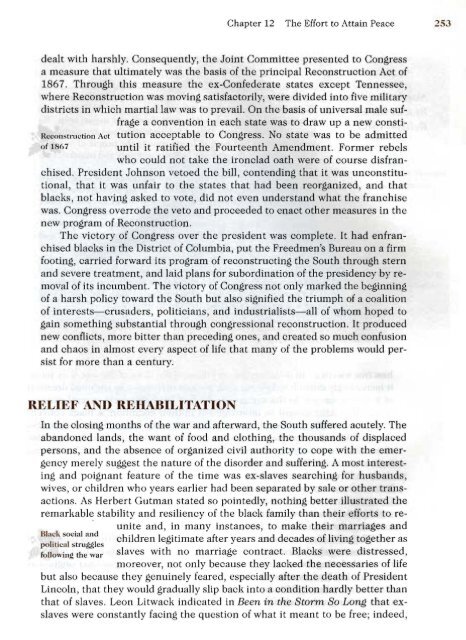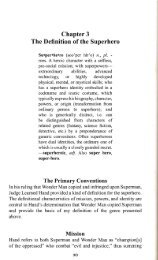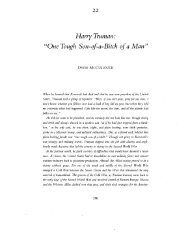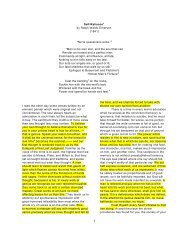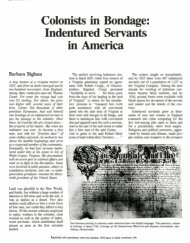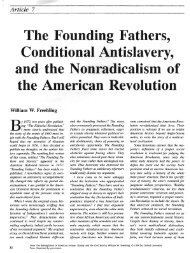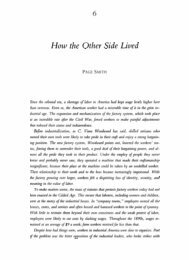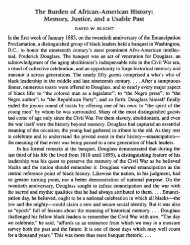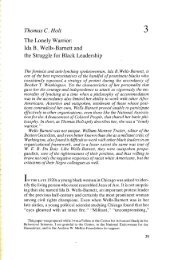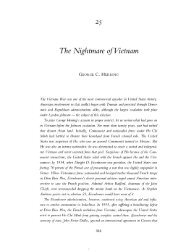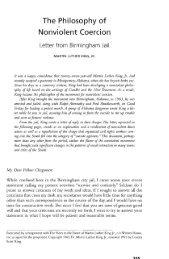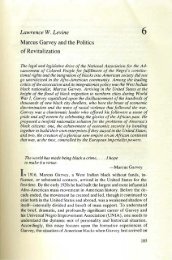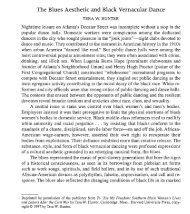Mary - Journeytohistory
Mary - Journeytohistory
Mary - Journeytohistory
You also want an ePaper? Increase the reach of your titles
YUMPU automatically turns print PDFs into web optimized ePapers that Google loves.
Chapter 12The Effort to Attain Peace253dealt with harshly. Consequently, the Joint Committee presented to Congressa measure that ultimately was the basis of the principal Reconstruction Act of1867. Through this measure the ex-Confederate states except Tennessee,where Reconstruction was moving satisfactorily, were divided into five militarydistricts in which martial law was to prevail. On the basis of universal male suffragea convention in each state was to draw up a new constiRccollstmctiolJ Act tution acceptable to Congress. No state was to be admittedof 1867until it ratified the Fourteenth Amendment. Former rebelswho could not take the ironclad oath were of course disfranchised.President Johnson vetoed the bill, contending that it was unconstitutional,that it was unfair to the states that had been reorganized, and thatblacks, not having asked to vote, did not even understand what the franchisewas. Congress overrode the veto and proceeded to enact other measures in thenew program of Reconstruction.The victory of Congress over the president was complete. It had enfranchisedblacks in the District of Columbia, put the Freedmen's Bureau on a firmfooting, carried forward its program of reconstructing the South through sternand severe treatment, and laid plans for subordination of the presidency by removalof its incumbent. The victory of Congress not only marked the beginningof a harsh policy toward the South but also signified the triumph of a coalitionof interests-crusaders, politicians, and industrialists-all of whom hoped togain something substantial through congressional reconstruction. It producednew cont1icts, more bitter than preceding ones, and created so much confusionand chaos in almost every aspect of life that many of the problems would persistfor more than a century.RELIEF AND REHABILITATIONIn the closing months of the war and afterward, the South suffered acutely. Theabandoned lands, the want of food and clothing, the thousands of displacedpersons, and the absence of organized civil authority to cope with the emergencymerely suggest the nature of the disorder and suffering. A most interestingand poignant feature of the time was ex-slaves searching for husbands,wives, or children who years earlier had been separated by sale or other transactions.As Herbert Gutman stated so pointedly, nothing better illustrated theremarkable stability and resiliency of the black family than their efforts to reounite and, in many instances, to make their marriages andI:Ilacl social andpolitical strugglesfollowing the warchildren legitimate after years and decades of liVing together asslaves with no marriage contract. Blacks were distressed,moreover, not only because they lacked the necessaries of lifebut also because they genuinely feared, especially after the death of PresidentLincoln, that they would gradually slip back into a condition hardly better thanthat of slaves. Leon Litwack indicated in Been in the Storm So Long that exslaveswere constantly facing the question of what it meant to be free; indeed,


